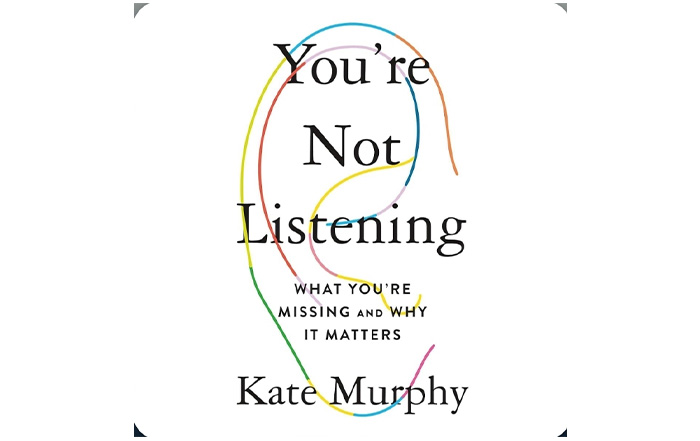Where to find this idea:
You’re Not Listening: What You’re Missing and Why It Matters by Kate Murphy
We’re all familiar with the classic advice — to be a better listener, make eye-contact, nod your head, avoid interrupting and, ofc, put your phone down. But let’s say we do all these things. Are we still really listening or are we just pretending we’re listening?
Maybe we’re hearing things (maybe not even that), but hearing is not the same as listening. Hearing is passive, listening is active. The goal of listening is not to simply hear what someone has to say. It’s to understand them and why they’re saying something.
Bad listeners are not necessarily bad people. They might interrupt you because they believe their thoughts could be valuable to you. Sometimes, they might interject so they don’t forget a point they wanted to make. Or, they might be waiting politely for their turn to speak, thinking that’s enough.
One of the most profound oversights in our society is the lack of emphasis on honing our listening skills. It’s not uncommon to find courses dedicated to our speaking abilities, yet how often do we stumble upon a course dedicated to the art of listening, especially in formal education? We’re deeply entrenched in a culture that celebrates speaking as a sign of confidence, while being quiet feels like weakness and a missed opportunity to say something that can benefit us.
Listening is not just one of the best gifts we can give to others (because everyone loves to feel valued and understood). It’s also one of the best gifts we can give to ourselves. It’s through listening that we cultivate wisdom. Choosing not to listen is equivalent to placing boundaries on our understanding of the world, limiting exposure to varied perspectives, and avoiding challenges to our opinions and beliefs. It is in understanding others and ourselves that we can foster relationships that are deep and profoundly meaningful.
We want to leave you with 3 things to consider in your next conversation:
- Don’t assume that you know what people are talking about.
- Support the conversation, don’t shift it by talking about yourself or changing the subject.
- Allow silence because people need time and space to gather their thoughts.

